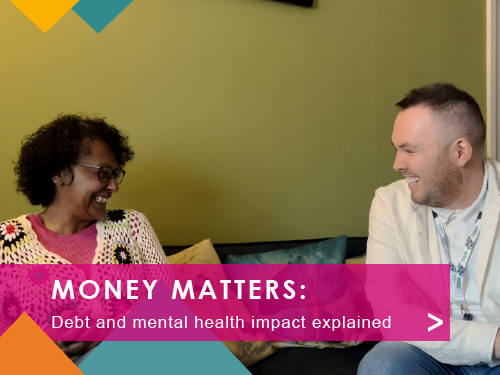Money Matters: The Link Between Debt and Mental Health Explained

In this week’s Money Matters column, Wrekin’s debt and energy manager Dan Bebbington looks at the worrying link between money problems and mental health.
This week marks Mental Health Awareness Week, a vital time to acknowledge the growing link between mental health struggles and financial difficulties, especially debt.
According to the Martin Lewis’s Money and Mental Health Policy Institute, people with mental health problems are more than three times as likely to be in problem debt.
Meanwhile Mind, the mental health charity, reports that one in four people with a mental health condition is also battling debt, showing just how deeply intertwined these challenges can be.
People suffering from conditions like anxiety and depression can find it more difficult to manage day-to-day tasks like paying bills or budgeting, which can lead to mounting arrears.
Meanwhile some people report overspending to try and feel better, making impulsive financial decisions, or being too overwhelmed to even open their post.
In turn, the pressure of missed payments, letters and calls from creditors, strand the shame or fear that often accompanies debt can deepen mental health struggles.
It becomes a vicious cycle, where each problem fuels the other. But it’s important to remember that neither issue defines you, and there are steps you can take to access support and regain control.
Opening up is often the first and hardest step. Speaking to a trusted friend, GP, or debt advisor can ease the burden and open doors to help.
Reaching out to creditors might feel daunting, but many have specialist teams trained to support customers experiencing mental health issues, and can offer flexible payment options.
There’s also practical support available from charities like StepChange, National Debtline, and Citizens Advice, which are free, confidential, and can help you make sense of your finances and create manageable plans. Wrekin customers can also access our regulated debt advice service, part of our Money Matters team.
If you don’t feel ready to talk just yet, then there are small changes you can aim for to make things easier. For example, setting up direct debits or using budgeting apps can help with day-to-day money management, especially if your concentration or memory are affected by mental health problems.
Debt can feel isolating, but you are not alone. This Mental Health Awareness Week, it's more important than ever to talk about it.
14th May 2025